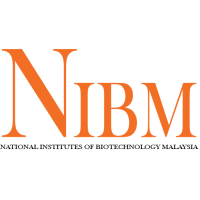Basal stem rot is an aggressive disease in oil palm caused by Ganoderma species. The disease threatens the commercial oil palm plantations of South East Asia, especially in Malaysia. In order to understand the mechanism involved in the early stage of interaction between Ganoderma spp. and its host at systemic level, proteomic analysis of oil palm leaves was conducted on protein samples collected over 72 hours during inoculation with pathogenic Ganoderma boninense and non-pathogenic Ganoderma tornatum. A total of 82 proteins resolved during two-dimensional gel electrophoresis with significant differences in the spot abundance. However, only 24 differentially expressed proteins in response to Ganoderma spp. inoculations were successfully identified by mass spectrophotometry as compared to the non-inoculated control. These proteins are mainly involved in photosynthesis, signalling, stress/defense, energy and metabolism regulation. Changes in relative abundance of these proteins suggest an important role in disease susceptibility. Most proteins showed altered abundance in response to both G. boninense and G. tornatum, while some proteins were only affected by either G. boninense or G. tornatum. The putative role of the identified proteins in oil palm leaves during the interaction with both Ganoderma spp. is discussed.
Data dan Sumber
| Field | Value |
|---|---|
| Bidang Penyelidikan | Bioteknologi |
| Objektif Sosioekonomi | Advanced Experimental and Applied Science |
| Penerbit | |
| Lesen | License Not Specified |
| Tahap Akses Awam | Public |
| Modified | 2019-12-09 |
| Release Date | 2019-12-05 |
| Identifier | 49ba1157-1994-4baf-b4b6-7b509be9cb84 |
The online version of this article (http://dx.doi.org/10.4454/JPP.V98I2.025) contains supplementary material, which is available to authorized users.

